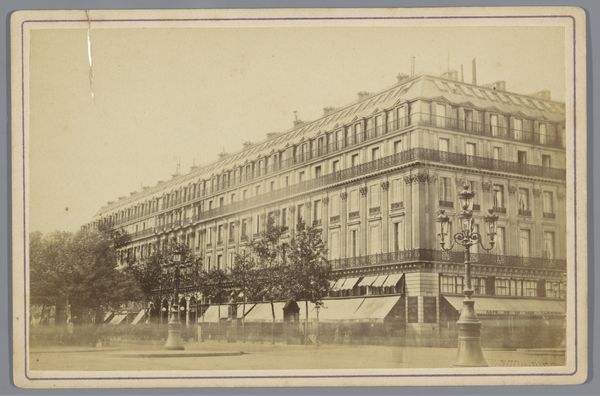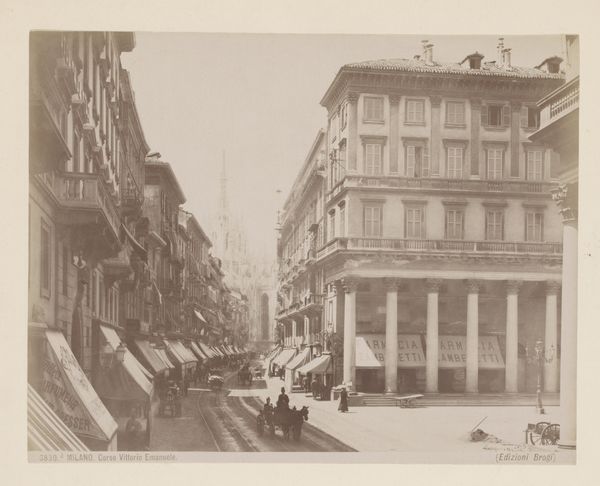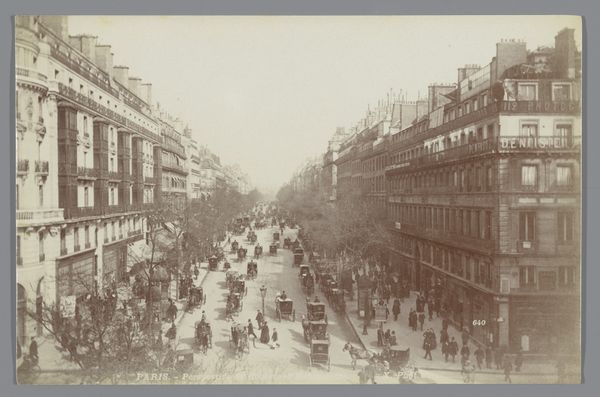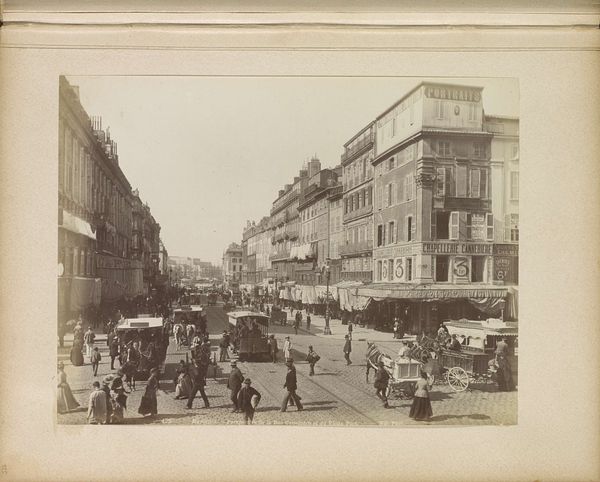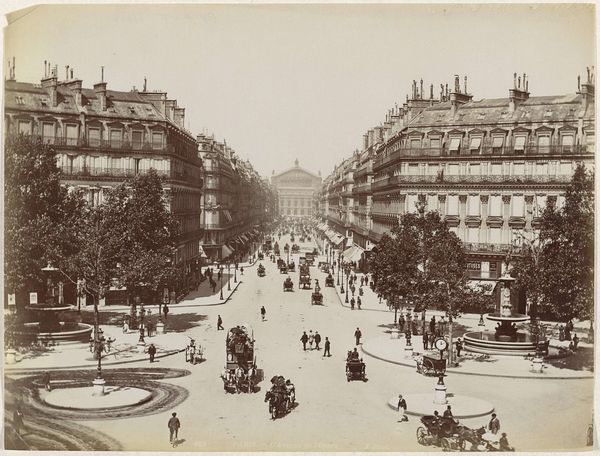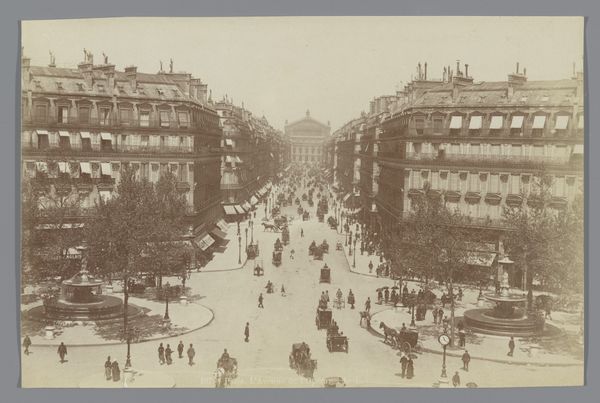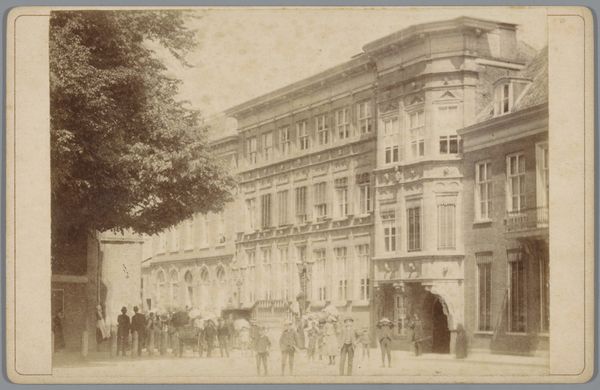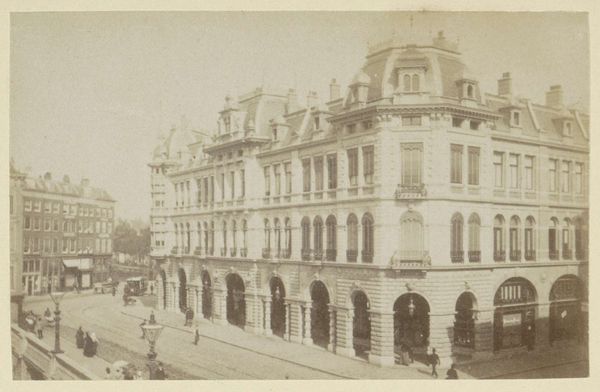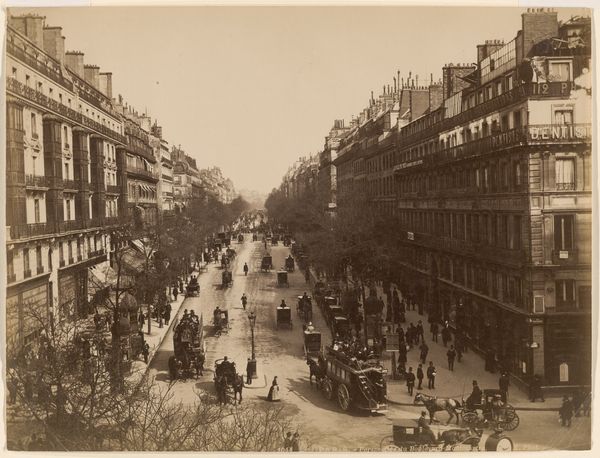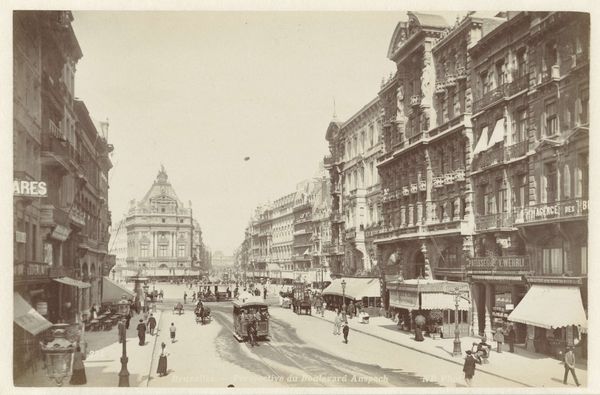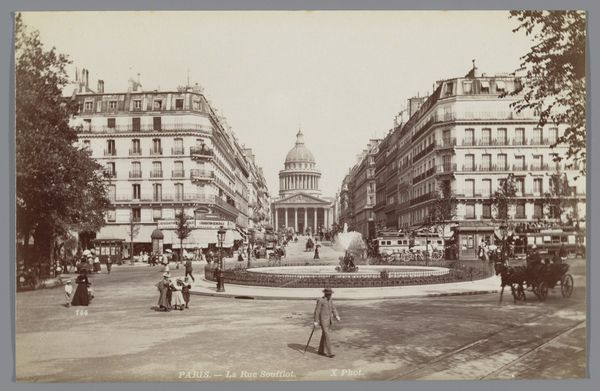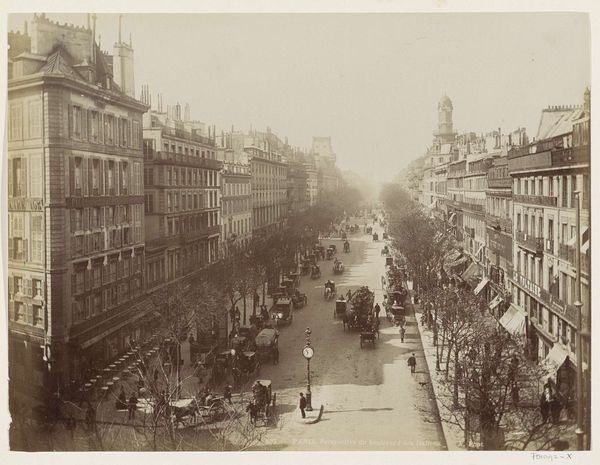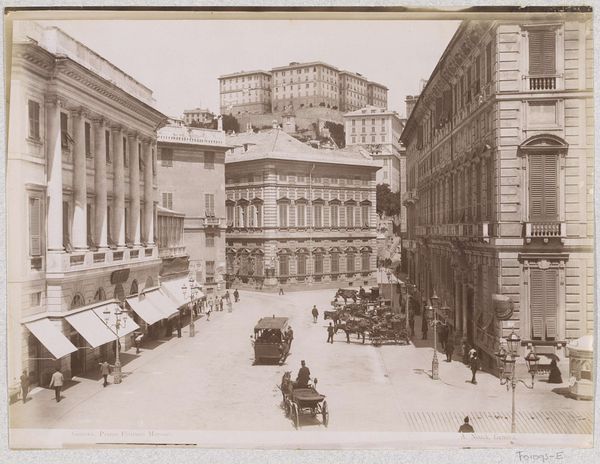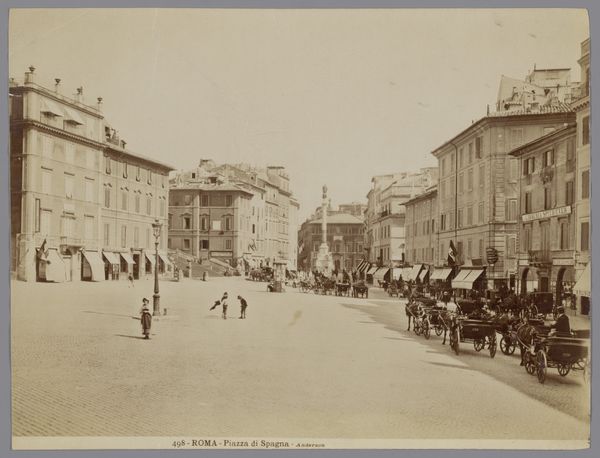
photography, architecture
#
photography
#
cityscape
#
genre-painting
#
street
#
architecture
#
realism
Dimensions: height 121 mm, width 185 mm
Copyright: Rijks Museum: Open Domain
Editor: Here we have "Gezicht op de Rue de Rivoli, Paris", a photograph, most likely albumen print, from somewhere between 1887 and 1900. The photo depicts a busy street scene in Paris. I’m struck by how formal and organized it appears, even with the hustle and bustle. What do you make of this photograph? Curator: The photograph presents a compelling record of urban life and architectural development in late 19th-century Paris. I think the work highlights the planned elegance of the city, especially as reimagined by Haussmann. It demonstrates how photography was becoming a tool for documenting, and perhaps even celebrating, modern urban spaces. What do you observe about the figures in the street? How do they contribute to the photograph’s overall message? Editor: Well, they seem intentionally arranged, especially that line of soldiers! It's almost like a staged tableau, inserted into the street scene. It seems meant to project power and order within the urban landscape. Curator: Exactly! Consider the political implications. Photography, disseminated widely, presented carefully chosen images of Parisian life. Who controlled that imagery and what narratives were they constructing? Was it solely a depiction of reality, or a performance intended for both domestic consumption and international prestige? What's your sense? Editor: I suppose the photograph serves multiple purposes. On the one hand, it captured a moment in time and served as historical documentation. Yet on the other, it presented an idealized vision, carefully constructed. It makes you wonder what wasn't captured—whose stories were excluded? Curator: Precisely. Thinking about this photograph in relation to the Realist art movement – its adoption of everyday life is a testament to the Realist values. Its public role should also be considered, shaping a specific perception of Paris, and implicitly, France. I'd say it goes beyond mere documentation. Editor: I agree. I had only been thinking of it as just documentation! But thinking about the staged element adds a different layer to my understanding of its context. Curator: These images circulated and shaped global perceptions. Reflecting on those layers certainly expands our view.
Comments
No comments
Be the first to comment and join the conversation on the ultimate creative platform.
